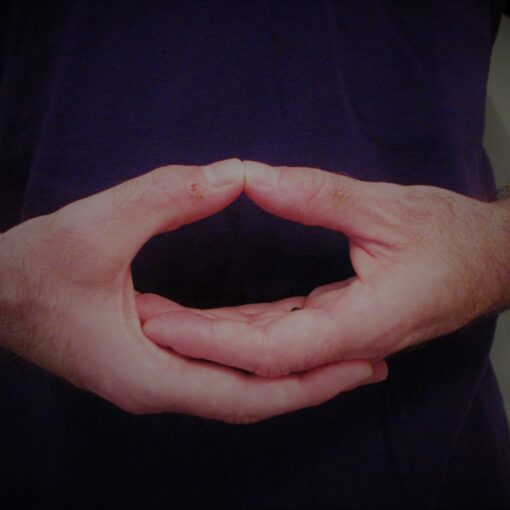Elite athletes and coaches often emphasise the importance of the mental aspects of sporting success. Often serious sportspeople train with similar physical intensity and have similar levels of technical proficiency, but what gives someone a competitive edge is their mental attitude. In their recent book on Mindful Sport Performance Enhancement: mental training for athletes and coaches, Kaufman, Glass and Pineau note: ‘The significance of mind to performance outcomes may only grow as one rises through the levels of competition and physical capacities (e.g. size, speed, strength) become less distinguishing’. This article discusses the importance of mental preparation in running and how using techniques of mindfulness and self-compassion, in particular, can help you prepare your mind as you train your body.
The mental training paradox and the benefits of mental preparation
There is ample evidence that psychological, rather than physical factors influence day-to-day fluctuations in physical performance. Mental preparation is an essential, if often neglected, element of athletic training. The fact that athletes recognise the importance of training the mind as well as the body, but often don’t spend enough time on this important element of training is sometimes called ‘the mental training paradox’. So, what can you do to solve the mental training paradox?
The mental aspects which are relevant to optimising your physical performance in athletic disciplines such as running include:
- Focus – An ability to concentrate. Paying attention to yourself and your environment in training and competition.
- Clarity of perspective – A clear understanding of your goals and how to adapt to changing circumstances in the moment. Having a ‘panoramic specificity of awareness’, when you have a clear, focused awareness of your task and environment without being too narrowly focused or introverted.
- Resilience – This isn’t necessarily about being ‘mentally tough’ and just pushing through pain or difficulties, but rather developing an awareness of what you need physically and mentally in the moment so you can recover quickly from set-backs.
- Motivation – Athletes are often physically self-aware, but they are not always mentally or emotionally self-aware. Understanding what motivates you in sport can help you tweak your training regime to deal with issues such as boredom in training, performance anxiety (for example, a fear of losing), and coping with injury.
- Equanimity as a pre-cursor to peak performance (i.e. ‘flow’ or ‘being in the zone’) – Equanimity is a sense of inner balance, an ability to face with success and failure with an equally calm perspective; a sense of ‘poise’ or ‘composure’ in pressured situations. When concentration and composure are combined with clear motivation and skilled physical performance, you create the conditions for peak performance, a mindful automaticity when everything feel effortless – you are in the zone. This is what sports psychologists call ‘flow’ experience’.
Motivating yourself through self-awareness and self-compassion, rather than self-criticism
So how can mindfulness and self-compassion help you improve your running? First, it is important to be clear on what these concepts mean. Jon Kabat-Zinn, an authority on mindfulness who applied Buddhist mindfulness practices to stress reduction, states:
‘Mindfulness means paying attention in a particular way: on purpose, in the present moment, and nonjudgmentally.’
Developing self-awareness of your physical, mental, and emotional state in the present moment enables you to respond to challenges in training and competition (as well as in life) intentionally, rather than being caught up in the immediacy of an emotional reaction to a stressful circumstance. Mindfulness needs to be practised with self-compassion, as it is easy to be self-aware, but highly self-critical. Self-compassion is not about being self-indulgent, but about giving yourself what you need in the moment to be okay. Using mindful self-awareness and a self-compassionate, rather than harsh self-criticism, you are able to appraise how you feel physically, mentally and emotionally during sport and give yourself what you need in the moment to optimise your performance. Perfectionism can be counter-productive. Pushing yourself to continual improvement through criticism can seem motivational, but in the longer term it can feed self-doubt and lower confidence and motivation as you start to view even your successes as ‘not being good enough’. A self-compassionate approach, appraising your running without judgement, and responding with supportive rather than critical feedback to yourself, enables you to get over mistakes and disappointments much more quickly than beating yourself up.
We all sometimes experience negative internal thoughts. The aim of a mindful and compassionate approach is not to eradicate these, but to acknowledge them without buying into them or pushing back against them too much. In his well-known book on Acceptance and Commitment Therapy, doctor and psychotherapist Russ Harris asks us to consider not so much whether our thoughts are true, but whether they are helpful? A practical suggestion that you can use when you find yourself being self-critical is to apply the ‘friend test’. Sometimes we think to ourselves things like: ‘That time was awful’’ or ‘I’m not good enough to be in this race.’ Even if you mess up your pacing or the other competitors have better times, would you aim such negative criticism at a friend? I doubt it. Next time you find yourself being self-critical, try to notice what you’re doing, acknowledge the thought, but also see that it is only a thought. Reframe the criticism as supportive appraisal, rather than as a negative self-judgment. For example, ‘I know I’m under pressure right now, that made me go out too quickly. Just breathe, calm down, and adjust your pace.’ Being self-compassionate, rather than self-critical will help you cope better with pressure and get over mistakes more quickly – you’ll be more resilient.
The evidence behind mindfulness and its application to sport
Research shows that regular mindfulness practice (i.e. meditation) has neurological benefits. It activates the activates the parasympathetic nervous system, the brain’s soothing network. Rick Hanson summarises the benefits of mindfulness meditation in his book Buddha’s Brain: the practical neuroscience of happiness, love and wisdom:
- It increases grey matter and reduces the effects of aging in the brain, improving psychological functions such as attention, compassion, and empathy.
- Increased activation of the left-frontal brain region, improving mood.
- Increased levels of gamma-range electrical brainwaves, which show that neurons are firing together creating stronger neural pathways, a sign of more integrated brain function.
- Decreased levels of the stress-hormone cortisol.
- A strengthened the immune system.
- Better management of medical symptoms (e.g. chronic pain) and psychological conditions such as anxiety and depression.
While there is an established evidence base on the general benefits of mindfulness, research on its application on sport is still an emerging discipline. Kaufman, Glass & Pineau, and Baltzell & Summers provide some useful summaries of recent studies in this area in their recent books on mindfulness for sport. For example:
- Female soccer players reported having a better relationship with their emotions (e.g. increased perseverance and calmness) and improved focus on the field after completing a 12-session programme of mindfulness training for sport.
- A study conducted with the USA BMX cycling team found significant improvements in interoception (i.e. internal bodily awareness), as well as the ability to describe experiences, as well as increases in the insula and anterior cingulate cortex, which are parts of the brain associated with empathy, a key component of compassion for self and others.
- 2011 research on pistol shooters reported improve accuracy and reduced cortisol levels (a hormone related to stress) after mindful meditation.
- More wins were reported in a study of 100 female tennis players who did mindfulness meditation compared to a control group.
While the evidence base is still emerging, such changes in bodily awareness and emotional regulation noted in studies such as these suggest that mindfulness may well help improve performance and increase wellbeing in elite sport.
Some practical suggestions for improving your resilience and performance using mindfulness and self-compassion
It’s important to note that you don’t need to do long, daily meditations to incorporate mindful and self-compassionate strategies and techniques into your established training routine. While regular meditation may well be helpful, it’s not the only way of being mindful. I’ll conclude this article with some practical suggestions on how you can apply mindfulness and compassion in your training and competitive routines to help you optimise your performance.
- If you suffer from performance anxiety, for example before a competition, one mindfulness technique you can use is S.T.O.P. – an acronym for ‘Stop, Take a Breath, Observe, and Proceed’. It needn’t take long – a minute is all you need. The first thing to do is pause and notice how you feel (e.g. nervous). Taking a deep breath will help calm you. Observe how you feel and whether your emotions are affecting you physically. This act of observation will help distance you mentally from the immediacy of your emotional reaction. Mindfully observing how you feel with self-compassion, rather than either buying into it (‘I feel really nervous’) or resisting it (‘I hate being anxious’), will make it more manageable. You’ll then be able to proceed with your competition with a bit more composure, even if it’s still a pressured occasion.
- Build in mindfulness into your warm-up and / or cool-down. A warm-up and cool-down routine is likely a regular part of your daily or weekly routine. You don’t necessarily need to meditate to be mindful, instead you can do a ‘mindful movement’ during your warm-up or cool-down stretching. The way to do this is to pay attention to your sensory experience in each stretch – notice areas of tension and relaxation. Observe how tension in one body area affects other parts of your body. Become aware of how your movements affect how you breathe – there’s no need to change your breathing, just to pay attention to it. Use proprioception, an awareness of body movement, to feel the transition between body positions in different stretches. This focus on the sensory experience of gentle and varied movements and positions in your warm-up and cool-down will help bring your mind to the present. Using the body as an anchor for mindful awareness can help focus your mind on what you are doing right now, rather than over-thinking how your performance will go or ruminating on how it went. Acknowledge your thoughts and feelings, but let them be and let them come and go. By doing this, you can turn part of your regular, established training regime into mindfulness training to improve your focus.
- Our breathing often becomes erratic when we are physically tired or over-stressed. If you find your breathing is out of balance during a run, focus on your feet. Feel the sensations of the ground against the soles of your feet as you step, notice the rhythm of your gait, the transfer of weight as you take each step. Often as you pay attention to the rhythm of your gait, your breath will begin to stabilize to match your physical pace.
Mindfulness and self-compassion are not a panacea for dealing with pressures either in sport or life. These approaches won’t eradicate difficulties such as performance anxiety, frustration at getting injured, or disappointment when fail to reach a personal goal. However, incorporating mindfulness and self-compassion into your training may help you cope better with such challenges, and in doing so enable you to perform better. If you’d like to learn more about the approach outlined in this article, visit www.mindfulkindfulness.co.uk for information about the course on ‘Improving Sports Performance through Mindfulness and Compassion’ or contact kris@mindfulkindfulness.co.uk with any enquiries.



